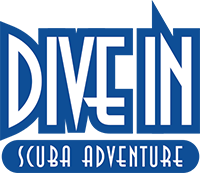WRITTEN BY STEFANO BARBARESI
Vitamin C is a very small and very important molecule, so important that all plants and most animals produce it themselves.
Man, monkeys and guinea pigs, on the other hand, are not capable of it, and are forced to obtain it through food (mainly fruit and vegetables).
The main job of vitamin C is to help some proteins produce very important molecules that form the structure of our body (collagen), keep us active (hormones, including adrenaline) and give us energy (carnitine).
So, if vitamin C is lacking, there’s trouble: tissues weaken and bleed, teeth and hair are lost; feeling tired, depressed, and sleepy; and finally, you die.
This is scurvy, the disease caused by lack of vitamin C.
Centuries ago, scurvy killed, for example, sailors who, on ships, followed diets devoid of fruit and vegetables for months and months. Today, however, it is a very rare problem. In your spare time, when it’s not busy helping protein, vitamin C works on its own as an antioxidant. In this version, its very important task is to defend cells from oxidants, i.e. free radicals.
A free radical is a molecule which, due to an accident or a collision with a too aggressive chemical substance, has lost a few electrons.
Electrons are like flies that circle around each molecule. Although they are tiny and rather insignificant, electrons are the engine of almost everything that happens in the world of chemistry.
For this reason, a molecule that suddenly loses one of its precious electrons becomes in a bad mood, more or less like a person whose smartphone has just been stolen.
The free radical reacts disproportionately to his misfortune. To make up for the damage suffered, as soon as it meets another (guilty) molecule, it snatches an electron from it and takes it away. This “theft” of electrons is called oxidation, and the “thief” (i.e. the free radical) is called the oxidizer.
Having recovered its electron, the free radical transforms itself back into a molecule like any other. Meanwhile the victim, who has now become a free radical, goes in turn in search of another victim: thus begins a vindictive chain of oxidations which, left to itself, never ends.
In their impetuous search for the lost electron, free radicals don’t look anyone in the face: even fats, proteins and above all DNA become easy targets, with disastrous consequences for the health of cells. In this way, free radicals contribute to some of the most catastrophic events that affect our body, such as the death of neurons in the brain and the transformation of healthy cells into cancer cells.
Antioxidants (such as vitamin C) intervene in defense of the cells, superheroes ready to fight the very bad free radicals. Instead of responding to violence with violence, antioxidants choose passive resistance: they offer themselves as voluntary targets, against which the fury of free radicals can unleash itself without causing damage.
Vitamin C, in particular, when it suffers an electron theft, accepts it with resignation, without seeking revenge at the expense of other molecules. In doing so, it interrupts the oxidation chain and defuses free radicals.
If vitamin C is not present in sufficient quantities in our body, it can be forced to concentrate on only one of its tasks (that of protein helper), neglecting its function as a cellular superhero. Without the protection of vitamin C against free radicals, the body could be defenseless and fall ill with, among other things, cancer.
Some studies have confirmed that those with more vitamin C in their blood have a lower risk of developing (stomach) cancer and other diseases.
Still, stuffing yourself with vitamin C pills won’t stave off cancer (or colds, for that matter). How to explain this paradox?
Vitamin C alone probably isn’t enough to fight off free radical attacks, and only a mix of vitamins, antioxidants and more (like the one found in fruit and vegetables) is really useful. That’s why, for example, abound with oranges – but not with vitamin C supplements, which our body often fails to absorb well! – it is important to protect yourself



